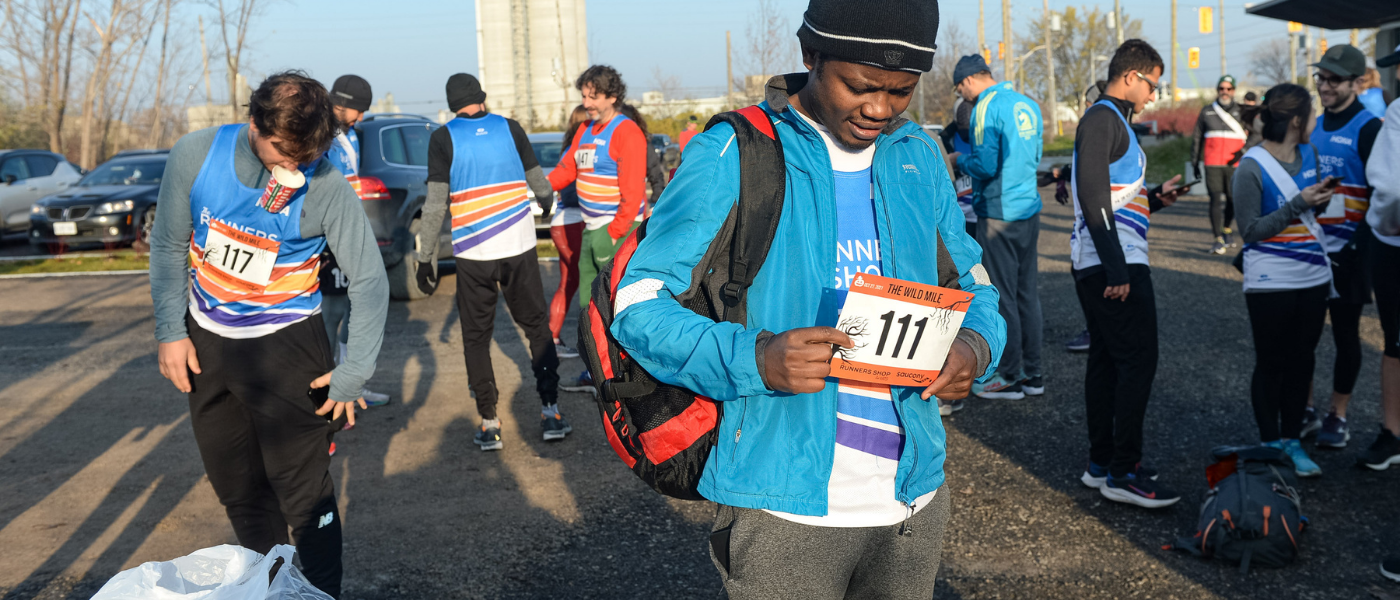How do you prepare for a race if you haven't been training?
What to do if you don’t want to miss out on your event.
Many runners will approach the starting line apprehensively this spring. With local favourites like Around the Bay, Spring Run-Off, and the Toronto and Mississauga marathons coming up, many runners are getting excited (and nervous) to run official, timed, in-person events again.
And while some pre-race jitters are normal, many runners will also be questioning their abilities and preparedness after a long winter and potentially under-training.
But don’t worry; all is not lost. We know race entries can seem expensive, so here are four options for you to still have a great time on race day!
1. Drop down to a lower distance
Many races don’t just offer the longest distance available! Most events nowadays include at least a 5k, half-marathon, and marathon option.
If you haven’t been training enough to run the full distance you signed up for, see if there’s space for you to drop down to a lower distance. You can usually do this on your event page login area (there may be a small administrative fee) or at the race kit pickup.
You could also post on social media to see if someone is selling a bib for a lower distance. If you buy a bib from someone else, remember you should ALWAYS officially transfer it to your name/info for safety reasons.
Don’t be bummed out if there isn’t space in the shorter distances, though. There are still other options for you.

2. Injured? Defer your entry
If you can’t approach the starting line due to an injury, see if you can defer your event entry. Most races will accept a doctor’s note (physio, sports med, etc.) to defer your entry to the next year or one of their other events.
Please only use this option if you’re really injured. Don’t push your luck, or you’ll be disappointed.
If you aren’t actually injured and just haven’t trained properly for the event, don’t defer. See if you can transfer your entry to someone who is prepared. Especially if the event is sold out, there will definitely be someone looking for a bib!
3. Run the event, just not at race pace
You might be at a place in your training cycle where you’re just a bit behind schedule. In that case, you can still complete the event at a much slower pace (depending on the distance). Think of it as extra training or a time trial to see where your fitness is at.
Remember, though, winning the first 1km of a race never did anybody any favours. Don’t come out of the proverbial gates too fast, or it will blow up in your face a few km later. You could get seriously injured if you’re unprepared.
If you still want to run your event and have been training (just not enough), you can run the event at a pace around 1-2 minutes per km slower than your easy pace. Consider it a training run and a lesson learned.
Make peace with the fact that you might have to drop out if you don’t feel confident in your ability to finish. There is no shame in a good old DNF (did not finish) on your record. The pros do it all the time.

Pro tip: If your event is still 4-5 weeks away, you might be tempted to amp up your training now and still attempt to run the full event distance at race pace.
Our word of advice is: don’t do it. A few weeks is not enough time for a proper build, and you’ll likely approach the starting line tired and more prone to injury, not refreshed and ready to crush a new PR.
4. Skip the event & cheer on your friends instead!
If you’re injured or seriously undertrained for your event and attempt to run, this puts extreme stress on your muscles and joints, leading to severe injuries or even death (yes, it has happened).
Instead of pushing your limits to the extreme, head on down to the racecourse to cheer on your friends. Maybe you can even hop into pace one of them for the last 5-10km if you can run that distance comfortably.
You don’t need to miss out on the post-race celebration! Just join your pals after they finish and enjoy sharing their success :)
Not sure if you’re undertrained? Look at a training program and cross-reference it with your weekly mileage for the last few months, and you’ll have a good benchmark. There’s no sense running an event where you’ll likely become injured for the rest of the season.
Here’s how to make it to the starting line healthy.
Want to set a new personal record at your next race?
If you have big running goals for yourself and don’t know where to start or need extra motivation to get your training in, a run club or coach could be right for you.
At The Runners Shop, we have race-specific training programs for your favourite races in southwestern Ontario. Or work with our coaches to achieve your specific goals!
Whether it’s running to get in shape, lose weight, smash some new personal records or tackle a bucket list item like running a marathon, we’ve got the coach for you!
Check out our run club and coaching options here and of course, feel free to call or email us if you have any questions!



